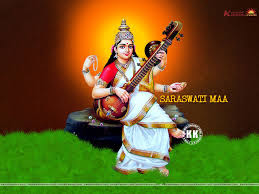Religion and Social Values :32.
3: The Reason for Birth and Death : 11. ( Last Part )
Hence, death and birth of this body—or the process of metempsychosis, transmigration—is a continuous effort on the part of our inner core to cast off old instruments which are not useful for a higher purpose, and to utilise new instruments for gaining greater and greater insight into the higher realms of existence. No one can free oneself from these difficulties we call birth and death as long as one is finite. Birth and death are processes compelled upon the finitude of individuals, and this cycle ceases only when we cease to be finite. The urge of the finite towards the infinite is the reason behind the transformations we undergo through the processes called birth and death.
Thus, it is a cosmic need, a necessity under the circumstance in which the universe is working. No one can be free from this phenomenon because we are in the phenomenon of finitude. As long as there is something outside us, as long as there is space, as long as there is time, as long as we are one person related to other things outside us, as long as there is space-time causal relations, birth and death cannot be avoided.
But our struggle is towards the Infinite: to unite ourselves, in the state of yoga, to that Being of all beings, satya se satyam, where the finitude of our experience enters the infinitude of being, like rivers entering the ocean. Then, space-time relationship ceases. All our daily activities are also contributory factors to this great aim. What is the connection that seems to be there between this great, noble and sublime aspiration of the universe towards moksha and our little, tiny, brittle activities of day-to-day life?
They are all groping in the dark in search of the exit from this world for a higher freedom. All our daily enterprises and works that we perform— whether we are a motorcar mechanic or a seller of vegetables and milk, a scooter driver or a clerk, whatever our occupation be—the sweat that we are shedding, the toil that we are undergoing, the work that we are doing, the suffering that we are passing through, the experiences of our life in any way are all little contributions that we unknowingly make to this great effort and purpose of the universe to achieve ultimate perfection.
Thus, there is nothing that we need in this world. We are asking for a thing of which we have no knowledge. Ignorantly we ask for that which is knowingly to be experienced. We are in a state of bondage because we are unconscious of the fact that we are unconscious of what is actually happening to us. The little joys and sorrows of life, the history of mankind, and the whole process of the cosmos are a great epic drama of the aspiration of the whole of creation for God-realisation.
As mentioned earlier, there is a great difficulty before us. All this is a grand aspiration, a great ideal before us, and we are throbbing and thrilled even to listen to these great possibilities which seem to be ahead of us. But we have little difficulties, little problems, little pulls which the Earth exerts upon us, to which I made reference yesterday. If you can succeed in reconciling this noble aspiration for the liberation of the spirit in God with the little duties of your life, you are a free man even here.
This is another subject, which is tantamount to a study of what usually goes as the practice of yoga. This has to be learned. Perhaps I have something to tell you about this technique that you have to employ from moment to moment in your daily life, by which you blend world and God together, and man and the Absolute walk together on the road as if they are friends going for a walk in the evening. This is a possibility. We shall have the opportunity to bestow contemplation on this noble subject.
END.
Next : The Realisation of the Absolute : 1: Introduction -
Swami Krishnananda




.jpg)
Comments